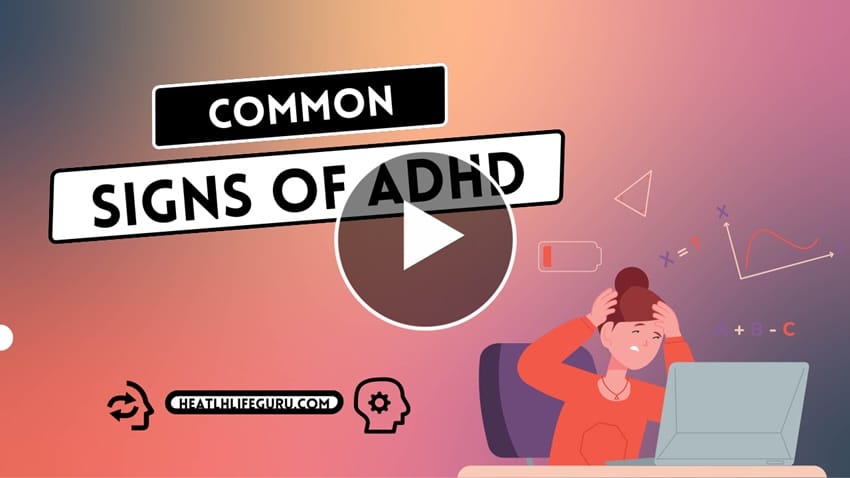In an era where smartphones have become almost an extension of yourself, it’s crucial to examine their impact on your mental health. These devices, while offering unprecedented access to information and connectivity, also pose significant challenges to your psychological well-being. This article delves into the multifaceted effects of smartphone usage, from addiction and social media influence to sleep disruption and cognitive changes. Understanding these impacts is vital for fostering a healthier relationship with technology, ensuring that smartphones remain tools for enhancement rather than a detriment to your mental health.
Contents
- The Psychology of Smartphone Addiction
- Social Media: A Double-Edged Sword
- The Impact on Sleep Patterns
- Anxiety and Stress: The Connectivity Conundrum
- Attention Span and Cognitive Effects
- The Isolation Paradox: Connected but Alone
- The Role of Smartphones in Mood Disorders
- Nurturing Positive Smartphone Habits
- The Bottom Line
- Related
The Psychology of Smartphone Addiction

Smartphone addiction is becoming increasingly recognized as a genuine psychological issue. It stems from the device’s ability to provide instant access to endless entertainment and information. This constant availability leads to habitual, often unconscious, phone checking. The brain’s reward system is triggered, releasing dopamine, a neurotransmitter associated with pleasure, each time a new notification pops up. This cycle of stimulus and reward reinforces the addictive behavior, making it harder to disconnect.
The dopamine effect plays a crucial role in smartphone addiction. Dopamine, often dubbed the ‘feel-good hormone,’ is released during enjoyable activities, including social interactions and smartphone use. This release can create a dependency similar to that seen in gambling or substance abuse. The problem intensifies with the endless stream of social media updates, emails, and messages, keeping users hooked. Recognizing these patterns is the first step in addressing smartphone addiction and its impact on mental health.
Social Media: A Double-Edged Sword

Social media platforms, accessible at your fingertips, can significantly impact self-esteem and body image. Users often compare their lives to the idealized versions presented by others, leading to feelings of inadequacy and low self-worth. This constant exposure to seemingly perfect lives can distort reality, creating unrealistic expectations for oneself. Moreover, the pressure to maintain a certain online image can be mentally exhausting, contributing to anxiety and depression.
However, social media isn’t all negative. It offers a platform for connectivity and community building, providing a sense of belonging and support. Users can find communities that share their interests, providing a space for positive interactions and personal growth. The key lies in balanced and mindful use, recognizing when social media starts to negatively impact mental health, and taking steps to mitigate this. Awareness and moderation are crucial in harnessing the positive aspects of social media.
The Impact on Sleep Patterns

Smartphone use, especially before bedtime, can significantly disrupt sleep quality and patterns. The blue light emitted by screens interferes with the production of melatonin, the hormone responsible for regulating sleep-wake cycles. This disruption can lead to difficulty falling asleep, reduced sleep quality, and even insomnia. Moreover, engaging with stimulating content on smartphones can keep the mind active, making it harder to wind down and fall asleep.
To minimize the impact on sleep, it’s advisable to establish a ‘digital curfew,’ avoiding smartphone use at least an hour before bedtime. Alternatives like reading a book or practicing relaxation techniques can aid in preparing the body and mind for rest. Additionally, many smartphones now offer ‘night mode’ settings, which reduce blue light emission, though the best practice is still to limit overall exposure before sleep. Prioritizing sleep hygiene can significantly improve both sleep quality and overall mental health.
Anxiety and Stress: The Connectivity Conundrum

The expectation of constant connectivity inherent in smartphone culture can lead to heightened stress and anxiety levels. The pressure to respond immediately to messages and emails creates a sense of perpetual obligation, blurring the lines between work and personal life. This constant state of alertness can lead to burnout, anxiety, and a feeling of being overwhelmed. Additionally, the influx of information and news, often negative, can further exacerbate these feelings, leading to a state of chronic stress.
Developing strategies to manage connectivity is essential for mental well-being. Setting specific times to check emails or social media can help create a healthier balance. It’s also beneficial to turn off non-essential notifications, reducing the constant barrage of alerts. Engaging in activities that promote relaxation and disconnection, such as exercise, meditation, or spending time in nature, can counteract the effects of stress and anxiety. Establishing these boundaries is crucial in maintaining a healthy relationship with technology.
Attention Span and Cognitive Effects

The pervasive use of smartphones has raised concerns about their impact on attention spans and cognitive functions. The constant switching between apps and notifications fosters a habit of digital multitasking, which, contrary to popular belief, reduces efficiency and impairs cognitive performance. This fragmented attention can lead to a reduced ability to concentrate on single tasks for extended periods. Furthermore, the instant access to information can diminish the need and ability to retain and process information deeply. This shift in cognitive processing has implications for learning, memory, and overall intellectual engagement.
To counteract these effects, it’s important to cultivate techniques that enhance focus and cognitive ability in the smartphone era. Practices like setting aside specific times for uninterrupted work, using apps that block distracting sites, and engaging in activities that strengthen concentration, such as reading or puzzle-solving, can be beneficial. Additionally, being mindful of the time spent on smartphones and deliberately choosing to engage in activities that require sustained attention can help in retraining the brain. Balancing digital consumption with activities that promote cognitive resilience is key to maintaining a healthy mental state. Encouraging a culture of focused attention, both online and offline, is essential in the digital age.
The Isolation Paradox: Connected but Alone

Despite being more connected than ever, smartphones can paradoxically lead to social isolation. The ease of digital communication often replaces face-to-face interactions, which are crucial for emotional bonding and understanding. This shift can lead to feelings of loneliness and isolation, as digital interactions lack the depth and emotional richness of in-person conversations. Moreover, excessive smartphone use can lead to neglect of real-world relationships and activities, further exacerbating feelings of isolation. The irony of being connected to many yet feeling alone is a significant consequence of the digital age.
Balancing digital and real-world social interactions is crucial for mental well-being. Making a conscious effort to engage in face-to-face interactions and participate in group activities can help mitigate the sense of isolation. Setting aside specific times to be phone-free, especially during meals and social gatherings, can enhance the quality of these interactions. Encouraging more in-person communication and prioritizing real-world relationships over digital ones can significantly improve social well-being. Recognizing the value of physical presence and human connection is essential in a digitally-dominated world.
The Role of Smartphones in Mood Disorders

There is a growing body of research linking smartphone use with mood disorders like depression and anxiety. Excessive use of these devices, particularly among adolescents and young adults, has been associated with increased rates of these disorders. The constant comparison with others on social media, the pressure to be constantly available, and the disruption of sleep patterns all contribute to this trend. Moreover, the addictive nature of smartphones can lead to neglect of activities that promote mental health, such as physical exercise and social interactions. Understanding the relationship between smartphone use and mood disorders is crucial for developing effective strategies to combat these issues.
Mindful usage of smartphones is key to mitigating their impact on mood disorders. Recognizing the warning signs of excessive use, such as neglecting responsibilities or physical health, is essential. Setting usage limits, engaging in digital detoxes, and prioritizing activities that promote mental health can be effective strategies. Additionally, seeking professional help when smartphone use begins to significantly impact mental health is crucial. Awareness and proactive management of smartphone use can play a significant role in maintaining mental well-being.
Nurturing Positive Smartphone Habits

Developing healthy smartphone habits is essential in the digital age. It’s important to be conscious of how and why you use these devices, ensuring that your usage aligns with your overall well-being. Setting boundaries, such as designated phone-free times or areas, can help in maintaining a healthy balance. Using apps and tools that track and limit usage can provide valuable insights and aid in self-regulation. Additionally, engaging in activities that are fulfilling and promote well-being, independent of digital devices, is crucial.
Digital detoxes, where smartphone use is intentionally limited or avoided for a period, can be particularly effective. These detoxes provide an opportunity to reconnect with oneself and the physical world, reducing dependency on digital stimulation. They also offer a chance to reflect on the role technology plays in our lives and how it can be managed more healthfully. Encouraging a culture of mindful smartphone use, where the focus is on quality rather than quantity of digital interaction, is vital to nurturing positive habits. Ultimately, the goal is to ensure that smartphones remain tools that enhance, rather than detract from, your life.
The Bottom Line
While smartphones are integral to modern life, their impact on mental health cannot be overlooked. This article has highlighted various aspects, from addiction and sleep disruption to social isolation and cognitive effects. It’s imperative to be mindful of these impacts and take proactive steps to mitigate them. Reflect on your own smartphone habits, set boundaries, and prioritize activities that foster mental well-being. Embrace the challenge to use technology responsibly, ensuring it serves as a tool for enhancement rather than detriment to your mental health.


